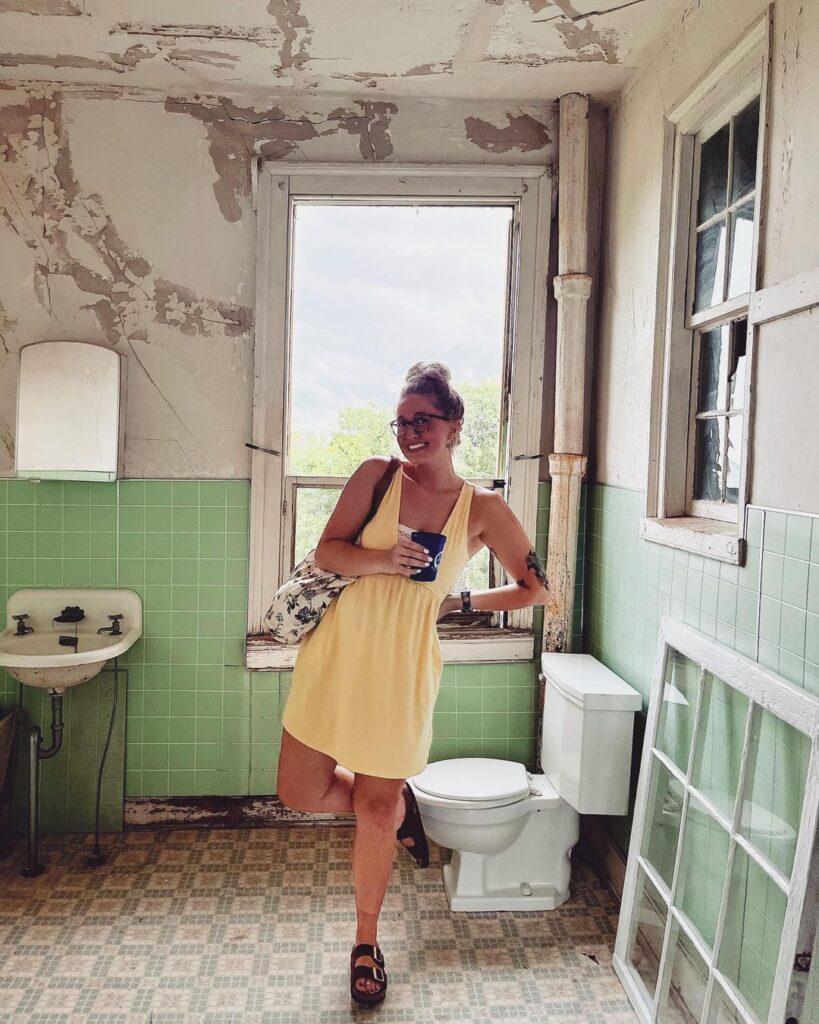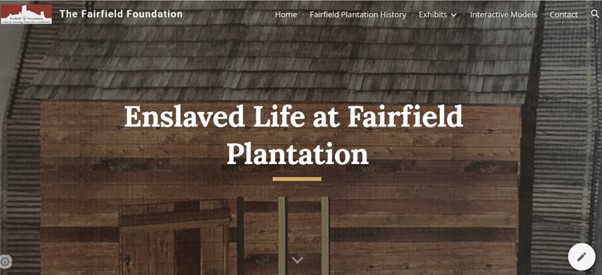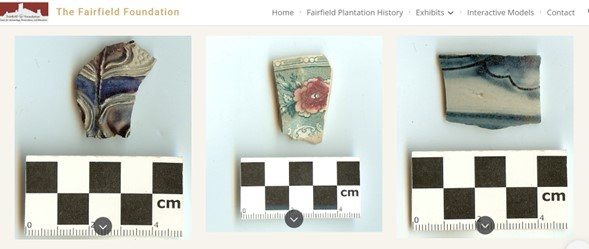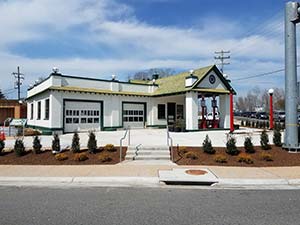Guest blog by summer intern Ashleigh Cannata, a graduate student from the University of Maryland, College Park.
Often museums are seen as places strictly with four walls, endless winding hallways, and a plethora of information it would take days to get through. However, following the COVID-19 pandemic and its lasting effects on our daily lives and interactions, some have begun thinking outside of the box to redefine what a museum is and its functions. At its core, a museum is a space dedicated to the research, preservation, and conservation of tangible and intangible heritage. In looking to connect to individuals near and far with no physical or geographical limitations, online museums are an outlet for education with few barriers. Online museums are open to all people, meaning an endless number of exhibits can be featured and rotated, to be utilized in local Gloucester County classrooms or classrooms across the nation. Consequently, during my five-week internship with the Fairfield Foundation, I dedicated myself to researching, developing, and launching an online museum and featured exhibit that will serve as an educational tool, personal learning space, and basis for future online museum expansion.
I am a graduate student who has not only been on the receiving end of virtual learning but also on the teaching side throughout the past three years. I have a passion for museums and have been actively working towards becoming a museum professional during my past year of graduate education. One thing that I have consistently faced in analyzing museums was the multitude of barriers that stood between visitors and museums which includes geographical distance, financial access, and physical limitations. I chose to pursue creating an online museum and exhibit during my time as an intern to bring the history of Fairfield Plantation to the doorstep of any interested individual with the click of a button. Fairfield Foundation’s online museum is a site free of charge and easy to use, dedicated to sharing the history of Fairfield Plantation and its diverse inhabitants.
It was not an easy task deciding what to highlight in the first featured exhibit on Fairfield Foundation’s new online museum website. With over 20 years of excavated artifacts to choose from, the selection process came down to highlighting a group of individuals that are often overlooked in colonial history. Enslaved individuals were the people who built the big plantation houses that are often glamorized and romanticized, yet they are frequently the most overlooked group when learning about colonial America. It was through the work and sacrifice of enslaved individuals that much of this country was built. Creating an online museum for Fairfield presented an opportunity to spark local conversations surrounding slavery and the multiple aspects of an enslaved individual’s life at Fairfield Plantation and beyond.
The online website currently features one exhibit on enslavement with four categories, including ceramics, beads, personal items, and labor, along with an FAQ page. Each section under the exhibit addresses an important artifact category and its use and importance to the enslaved individuals at Fairfield Plantation. Each artifact has contextual information for archaeological use as well as descriptions and analyses that allow website visitors to understand the importance and use of each object. These artifact groups, as well as individual artifacts, serve as important resources to comprehensively understand both overarching and specific archaeological and cultural trends within a self-guided space.
I invite you to explore the museum at your own pace and learn about archaeology, the Burwell family, and Fairfield Plantation’s enslavement history from wherever you are. I am excited to see the growth of the Fairfield Foundation’s online museum and to explore future featured exhibits. I am forever grateful to have had the opportunity as an intern to create this for the Gloucester County community and the amazing team at the Fairfield Foundation.
Click here to explore the online museum: https://sites.google.com/view/fairfieldfoundationmuseum.




